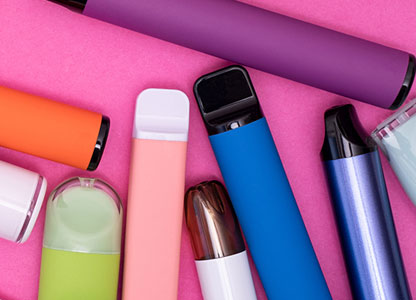More young people would start smoking if vapes were banned or made more expensive through taxes, a new study says.
Youngsters see smoking and vaping as “interchangeable” but are “far more” aware of the potential harms of vaping than the dangers of smoking, researchers found.
This is despite vaping being much less harmful to health than smoking, which kills eight million people globally every year.
Ban would stoke black market
Many of the young people polled also believed they could get around a proposed ban on disposable vapes by stockpiling or buying them on the black market.
Lead researcher Caitlin Notley, a Professor of Addiction Sciences at the University of East Anglia, said: “Youth use of disposable vapes has surged in recent years in the UK.
“Despite this increase, little was previously known about the motivations behind this trend and the experiences of young people who use these products.
“This study aimed to explore these aspects, providing valuable insights into the factors influencing youth vaping behaviour.”
The study probed the motivations, experiences and perceptions of using disposable vapes among 29 young people aged between 16 and 20.
Vaping and smoking ‘interchangeable’
Many said they both vaped and smoked cigarettes, viewing the two as interchangeable.
Alarmingly, researchers found there was a ‘common misconception’ about the relative harms of vaping compared to smoking.
Co-author Dr Ian Pope, also from UEA and an emergency physician, said: “Despite recognising the potential health risks, young people continue to engage in both vaping and smoking, often interchangeably.
“The widespread availability of underage vape sales and availability of illicit vapes further exacerbates this issue.”
The researchers say the study suggests that young people’s use of disposable vapes could be reduced by tighter enforcement of age of sale and restricting packaging and marketing.
Regulation could have “significant unintended consequences”
However, they also say the evidence suggests these sorts of interventions have the potential for “significant unintended consequences”, including increased use of illiegal vapes “and, most worryingly,” increased tobacco use amongst young people.
Professor Notley said: “Any interventions to combat use of disposables may need to be accompanied by policy interventions to reduce access to illicit vapes and tobacco and increase awareness of the relative harms of tobacco compared to vapes.”
The research, published in the journal Addiction, was conducted in partnership with the Norfolk and Norwich University Hospital and and London South Bank University, and funded by through the National Institute for Health and Care Research.



